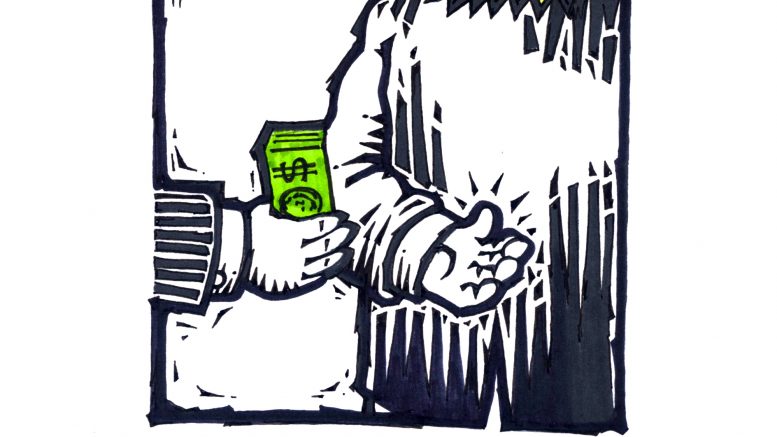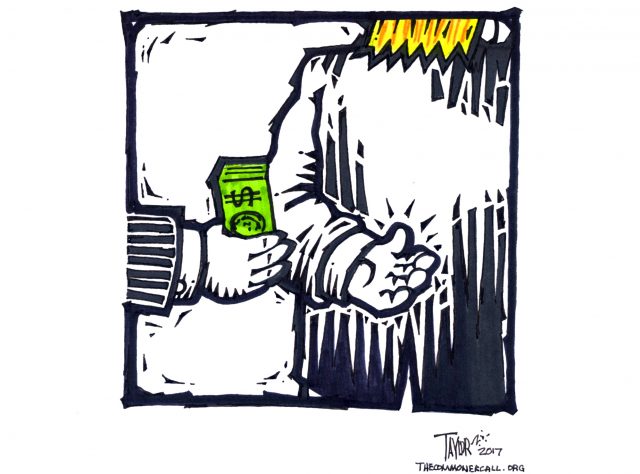A semi-comprehensive list of the business concerns that may influence the president during his time in office.
By Jeremy Venook
The Atlantic (6/12/17)
President Donald Trump still has not taken the necessary steps to distance himself from his businesses while in office. In accordance with a plan that he and one of his lawyers, Sheri Dillon, laid out at a press conference on January 11, Trump has filed paperwork to remove himself from the day-to-day operation of his eponymous organization. However, numerous ethics experts have voiced strenuous objections to the plan, which they say does very little to resolve the issue: As long as Trump continues to profit from his business empire—which he does whether or not he is nominally in charge—they say, the possibility that outside actors will attempt to affect his policies by plumping up his pocketbook will remain very much in play.
Saudi Arabia has created a template for foreign governments looking to influence the president through his businesses. …the country’s government spent nearly $270,000 on lodgings and catering at the Trump International Hotel in Washington, D.C., between November 2016 and February 2017.
Several of Trump’s critics have moved forward with legal action. The watchdog group Citizens for Responsibility and Ethics in Washington, or CREW, filed a lawsuit alleging that Trump’s business holdings violate the Emoluments Clause of the Constitution, which makes it illegal for government officials to “accept of any present, Emolument, Office, or Title, of any kind whatever, from any King, Prince, or foreign State.” CREW’s bipartisan legal team includes, among others, Norm Eisen and Richard Painter, who served as ethics lawyers under Presidents Obama and George W. Bush, respectively; Laurence Tribe, a constitutional law professor at Harvard University; and Zephyr Teachout, a professor at Fordham University (and former congressional candidate) who is considered an authority on the Emoluments Clause. All have been vocally critical of Trump’s continued refusal to sell off his business, and are now taking their case to court to argue that several of Trump’s businesses present avenues by which foreign governments could seek to influence the president by, for example, booking stays at one of his hotels or renting space at one of his properties. Additionally, the lawsuit seeks to force Trump to reveal his tax returns, something every president has done since Gerald Ford but which Trump has refused to do, significantly limiting the public’s ability to understand the president’s finances. …
(Commoner Call cartoon by Mark L. Taylor, 2017. Open source and free to use with link to www.thecommonercall.org )


